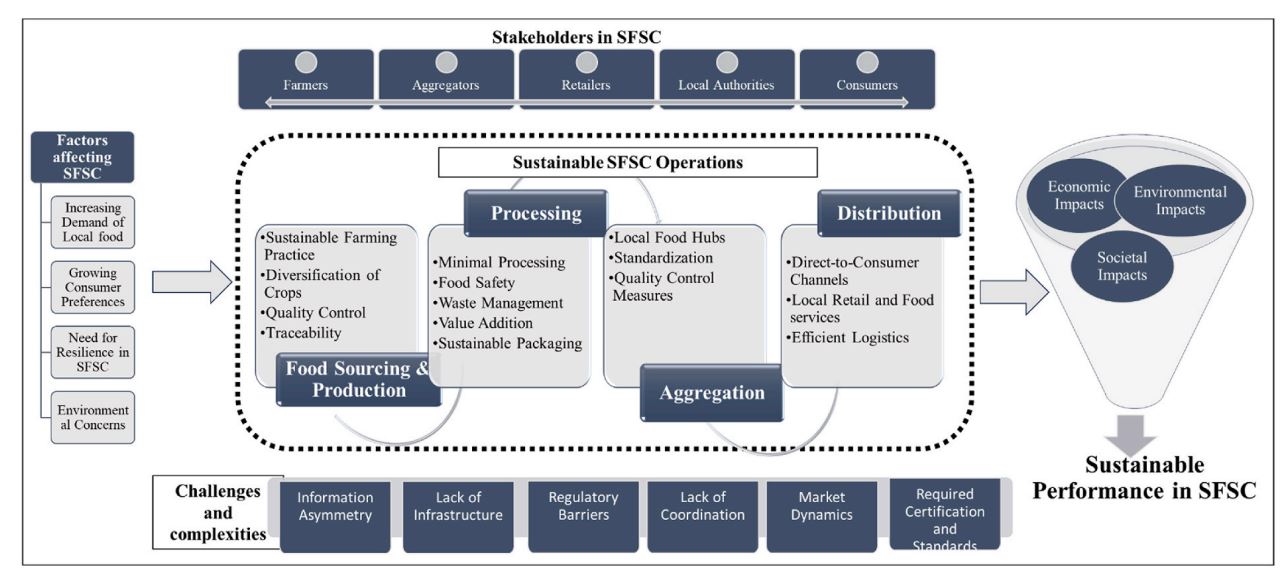January 5, 2024 | Journal of Cleaner Production | Source |
Introduction: Researchers from China, UK, Czech Republic, and Pakistan conducts a literature review on Short Food Supply Chain (SFSC) model, which connects local food producers directly with consumers to promote sustainability, economic development, and community engagement. A total of 92 research articles were reviewed understand factors influencing SFSCs, such as rising consumer demand for local and sustainable products, resilience in the food system, and environmental concerns.
Key findings: The SFSC model includes stages like food sourcing, processing, aggregation, and distribution. Key sustainable practices at each stage help reduce environmental impacts and support small-scale farmers. However, challenges such as information gaps, inadequate infrastructure, regulatory hurdles, and market dynamics limit SFSC potential.
Economically, SFSCs boost local economies and empower small producers, while environmentally, they reduce carbon footprints. Socially, they enhance community ties and promote responsible consumption. Future research should explore consumer behavior, sustainability impacts, technological innovations like blockchain, and policy interventions. Extending studies to different regions and improving data collection methods will provide deeper insights into SFSCs.
Figure | Integrated model of sustainable SFSC.





